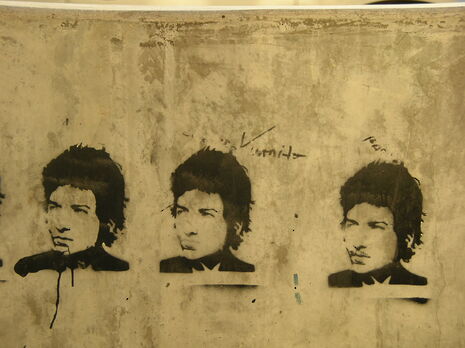Are songwriters poets?
Keats to Coldplay, Petrarch to Porter – what is the relationship between poetry and songwriting? In his first column, William Poulos explores the history of spoken word

Despite being praised as a poet by eminent literary critic Christopher Ricks, Bob Dylan is famous as one of the best songwriters of the 20th century. The Nobel Prize committee carefully explained its decision to award him the 2016 Nobel Prize for literature in anticipation of the clerisy’s qualified disbelief: sure, he’s a great songwriter, but songs are not poems.
Some of Dylan’s admirers were quick to point out that this absolute distinction of songs and poems occurred relatively recently: in classical Greece, poems were either sung by the poet or skilled performers; the medieval troubadour in England sung his own poems; Petrarch, one of the most important figures of the Renaissance, addresses those who “sing” his scattered rhymes; and poets of the 19th century, a period which saw a huge revival in plainsong and hymn writing, are said to have “chaunted” or “intoned” their poems when reciting them. Dylan’s literary award, and the publication of his and other songwriters’ lyrics in book form, seems to reforge the broken link between poetry and song.
Paradoxically, the division between written poetry and songs also occurred rather early. In the 3rd century BC, poetry flourished in Alexandria, but it was based upon its famous library, not a group of musicians. The Latin poetry of the first century AD is full of references to writers and readers, not singers and hearers.
While songs and poems in English share many characteristics – rhyme and rhythm, for instance – there are things one can do which the other cannot. Even poets who consciously associated their poems with songs illustrate this. John Keats, whose favourite topic of conversation was described as “melody in verse,” called some of his best poems ‘odes’ (from the Greek verb meaning ‘to sing’) and in one of them refers to himself as a singer. The odes rhyme, have a regular rhythm, and most of them are made up of identical stanzas, resembling verses in a song. Yet they cannot be effective songs: the syntax is too complicated, the images too detailed, the language too rich.
“A song exists only as its being sung; lyrics must be affecting on first hearing.”
One can grumble that songs are only about three or four different topics, and that they’re repetitive, but this is necessarily so: our ear canals are small, and too much information leads to a blockage. A song exists only as its being sung, so its lyrics must be intelligible and affecting on first hearing; they cannot be reread. The music compensates for this simplicity, which is why even the best lyrics are dull when read. Poems, on the other hand, must have their own music, which is why adding a melody to them is often excessive, like adding glitter to a painting.
Poems, also, are bound to their authors in a way that songs are not. Everyone knows that Edgar Allan Poe wrote “quoth the raven, nevermore,” but how many people know who wrote a song that everyone can sing, such as ‘I’ve Got You Under My Skin’? When people hear it, they think of Frank Sinatra, who sang the most famous recording, but Cole Porter wrote it, yet it doesn’t belong to him as Poe owns his Raven. You and I can sing ‘I’ve Got You Under My Skin’ without thinking of Sinatra or Porter because songs are collectively owned. (Often, they literally are: the legal rights to most songs belong to the record companies, not the people who wrote them.)
The idea of the singer/songwriter complicates this a little: ‘Blowin’ In The Wind’ can’t help but bring Dylan to mind, yet it retains a certain impersonality. No matter who wrote them, lyrics seem to speak for their audience and not to it: have you ever disagreed with a song? When Chris Martin from Coldplay sings ′Fix You’ we don’t imagine that he’s singing to us; we imagine that, with him, we’re singing to our (sometimes imaginary) lover or friend.
Modern poets could win back their audience by writing more songlike lines, i.e., ones which people enjoy hearing and reciting, rather than abstruse riddles about Danish lichen. Ronsard’s advice to young poets was to recite your lines aloud, or even better, sing them. Yet poems and songs are different things, and reach their goals differently. Great lyrics are an achievement which do not need praise from the literary world, either by receiving awards or being called a poem. The palm should go to the poem which, because it is so easy to quote and memorise, can be called a song
 News / SU stops offering student discounts8 January 2026
News / SU stops offering student discounts8 January 2026 Comment / Plastic pubs: the problem with Cambridge alehouses 5 January 2026
Comment / Plastic pubs: the problem with Cambridge alehouses 5 January 2026 Science / New year, new room, new you8 January 2026
Science / New year, new room, new you8 January 2026 Comment / What happened to men at Cambridge?31 December 2025
Comment / What happened to men at Cambridge?31 December 2025 News / Uni-linked firms rank among Cambridgeshire’s largest7 January 2026
News / Uni-linked firms rank among Cambridgeshire’s largest7 January 2026










